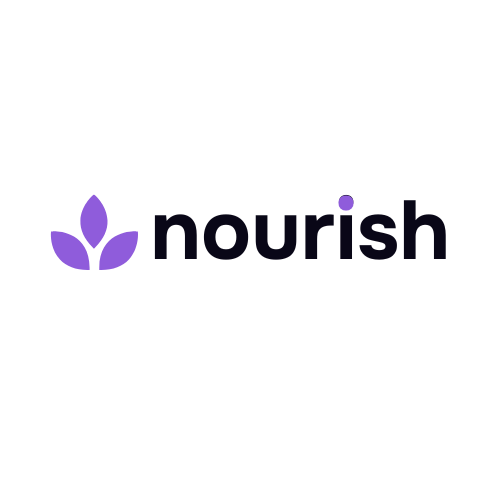A Teen's Guide to Living a Healthy Lifestyle
- Eden Pardau
- Mar 6, 2025
- 3 min read

There was a time when my daily routine consisted of mindless snacking, skipping proper meals, barely moving my body, and spending countless hours glued to a screen. Sound familiar? I know firsthand how easy it is to fall into these habits, especially when life feels overwhelming and social media bombards us with confusing and often unrealistic health advice. But over the past few months, I’ve discovered that living a healthy lifestyle doesn’t have to be complicated or restrictive—it can actually be enjoyable and empowering. If you’ve ever felt lost in the sea of “glow-up” trends or struggled to figure out where to start, you’re not alone. This guide is here to help you cut through the noise and make healthy living fun, sustainable, and realistic for YOU. So, let’s dive in—what does it really take to feel good from the inside out?
The Importance of Proper Nutrition
Your body is growing and changing rapidly during your teen years, which means it requires the right nutrients to function optimally. According to the CDC, teens need a balanced diet rich in macronutrients (proteins, fats, and carbohydrates) and micronutrients (vitamins and minerals) to support brain development, muscle growth, and overall energy levels.
Protein: Essential for muscle repair, growth, and immune function. Sources include lean meats, fish, eggs, dairy, legumes, and plant-based options like tofu and quinoa.
Healthy Fats: Necessary for brain function and hormone regulation. Found in foods like avocados, nuts, seeds, olive oil, and fatty fish.
Complex Carbohydrates: Provide sustained energy and support digestion. Whole grains like brown rice, quinoa, oats, and whole wheat products are great choices.
Vitamins & Minerals: Calcium and vitamin D are crucial for bone health, while iron helps transport oxygen in the blood. Leafy greens, dairy products, nuts, and seeds can help meet these needs.
Hydration is just as important—water helps regulate body temperature, transport nutrients, and remove waste. Aim for at least eight glasses a day, and more if you're active!
Exercise: Moving for Fun and Health
Exercise doesn’t have to mean hours at the gym or intense workouts. The CDC recommends at least 60 minutes of moderate to vigorous physical activity per day for teens. Staying active has numerous benefits, including improved mental health, better sleep, and a stronger immune system.
Find an activity that excites you:
Strength Training: Helps build muscle and increase metabolism.
Cardio: Activities like running, cycling, or swimming improve heart health and endurance.
Flexibility & Mobility: Yoga, pilates, and stretching can reduce injury risk and enhance overall movement.
Sports & Recreation: Team sports, dance, or hiking can make exercise feel more like fun than work.
The Right Mindset: No Restriction, Just Balance
Being healthy doesn’t mean being overly restrictive. Many diets promoted on social media can be harmful, leading to nutrient deficiencies and unhealthy relationships with food. Instead of eliminating foods, focus on moderation and balance. If you love sweets, enjoy them occasionally rather than cutting them out entirely. Practicing mindful eating—paying attention to hunger cues and eating slowly—can help prevent overeating and make meals more enjoyable.
Do Teens Need Supplements?
While whole foods should be the foundation of your diet, supplements can help fill gaps if you’re not getting enough nutrients from food. Here are a few commonly recommended for teens:
Multivitamins: Provide essential vitamins and minerals for overall health.
Vitamin D: Supports bone health and immune function, especially if you don’t get much sunlight.
Omega-3 Fatty Acids: Found in fish oil, these support brain health and reduce inflammation.
Iron: Important for teens who experience heavy periods or don’t consume much red meat.
Before taking any supplements, consult a healthcare provider to determine what’s best for you.
Sleep, Stress, and Social Well-Being
A healthy lifestyle goes beyond food and exercise. Your mental and emotional well-being are just as important.
Sleep: The National Sleep Foundation recommends 8-10 hours of sleep per night for teens. Lack of sleep can lead to poor concentration, weakened immunity, and mood swings.
Managing Stress: Stress is a normal part of life, but chronic stress can negatively impact health. Journaling, meditation, deep breathing exercises, and spending time outdoors can help reduce stress.
Healthy Relationships: Surround yourself with positive, supportive people who encourage your well-being. Avoid toxic relationships that drain your energy or negatively impact your self-esteem.
Make It Enjoyable!
At the end of the day, living a healthy lifestyle should feel good, not like a punishment. It’s about making choices that nourish and energize your body while allowing you to enjoy life. Start small, be patient with yourself, and remember that progress is more important than perfection. The goal isn’t to follow a rigid plan but to develop habits that make you feel strong, happy, and healthy in the long run. You got this--I believe in you!




Comments